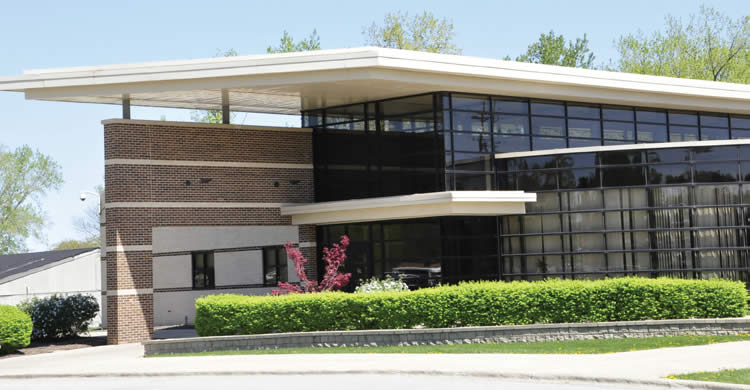Nearly $17 Million Social Impact Bond Program Reinforces the Mayor’s Commitment to Providing High-Quality early Childhood Education for Students Most in Need; Pay for Success Financing from Goldman Sachs, Northern Trust and the J.B. and M.K. Pritzker Family Foundation
CHICAGO—(ENEWSPF)—October 7, 2014. Mayor Rahm Emanuel and Chicago Public Schools (CPS) today announced 2,620 Chicago public school children will soon have access to high-quality early childhood education as a result of a Social Impact Bond Program, an innovative financing format that will fund pre-K education over the next four years. The program will provide early childhood education to 2,620 students over the life of the project through a half-day Child-Parent Center (CPC) model, a program that works with both students and their parents to improve educational outcomes. Access to quality early educational programs directly impacts the success of students in elementary school and beyond.
Chicago’s nearly $17 million Social Impact Bond Program is structured to ensure that its lenders, the Goldman Sachs Social Impact Fund and Northern Trust as senior lenders, and the J.B. and M.K. Pritzker Family Foundation as a subordinate lender, are only repaid if students realize positive academic results. The Program’s goals include: increasing Kindergarten readiness, improving third-grade literacy, and reducing the need for special education services.
“There is nothing that’s more important than our kids. Giving them a quality education from day one and helping provide their parents with the tools to be consistent and active partners in their children’s education is the best investment any of us can make,” said Mayor Rahm Emanuel.
The investment will fund the operating costs of expanding the CPC pre-K program for these students. Early childhood education is a priority for Mayor Emanuel and the City of Chicago. The Mayor has directed his administration to explore budget options to close the gap for children from low-income families who currently have no access to pre-kindergarten education. The lenders will share in the savings that CPS receives from reduced need for intervention later in a student’s educational career.
“Early childhood education helps create a strong foundation that benefits students throughout their entire education,” said CPS CEO Barbara Byrd-Bennett. “By investing in the expansion of pre-kindergarten programs, we will set more students on the right educational path and eliminate the need and cost for additional educational supports.”
The first cohort will include 374 students in the 2014 / 2015 school year, ramp up to 782 children for the next two years, and provide funding for at least 680 children in the fourth year of the project. This represents over half of the gap in access to pre-kindergarten for four-year-old children in families living below 185 percent of the federal poverty level.
For the launch of the program, CPS identified six schools serving low-income families in communities that had a shortage of publicly funded, high quality pre-K seats available. These include DeDiego in West Town, Melody Elementary in Garfield-Humboldt; Thomas in McKinley Park, Wadsworth in Woodlawn, Peck in West Elsdon and Hanson Park in Belmont Cragin. CPS and its teachers will manage the expanded program in these schools for the current academic year and expand to additional schools in future years.
Goldman Sachs and Pritzker pioneered this type of pay for success early childhood education financing with a similar effort last year for disadvantaged children in Utah.
“Innovative models like social impact bonds and Pay for Success programs allow the private sector to provide the capital needed to expand successful initiatives in our cities and communities, shifting the risk of achieving targeted outcomes away from the taxpayer and enabling governments to pay only for what works” says Andrea Phillips, Vice President, Urban Investment Group at Goldman Sachs. “We’re pleased to make this investment in early childhood education here in Chicago to continue our work in applying these new models of public private partnership to some of our nation’s most pressing social challenges.”
“We want to lead by example here in Chicago and encourage more investment nationally in high-quality early childhood education,” said J.B. Pritzker, one of the leaders behind the national push for early childhood social impact bonds. “Changing the lives of as many disadvantaged young children and their families as possible is our ultimate goal.”
“We believe passionately in the importance of early education and finding innovative ways to improve opportunities for children in school and at home,” Northern Trust Chairman and Chief Executive Officer Frederick H. Waddell said. “We have long believed that investing upfront in needed services can save money down the road, and are pleased to support a public-and-private effort seeking to demonstrate that.”
Chicago-based IFF, one of the nation’s leading community development finance institutions, will serve as the project coordinator and will contract with an Independent Evaluator to analyze the programmatic outcomes. The Finnegan Family Foundation will be funding the evaluation of the program for the first two years. Metropolitan Family Services will provide quality assurance and connect families with needed community resources.
“This is just the beginning of a whole new way of looking at investing in social programs. By tying repayment to outcomes and budgetary savings, we can unlock millions of dollars from untapped private sector resources to help expand programs serving some of our most vulnerable populations,” said Joe Neri, Chief Executive Officer of IFF.
“Assuring the public that the program achieves the results desired is the single most important part of any pay-for-success program. Our funding assures taxpayers that they only pay for success,” said Finnegan Family Foundation President Woody McCally.
To date, there have been four social impact bond programs in the U.S. with Chicago being the fifth and only the second of its kind. Goldman Sachs and the GS Social Impact Fund have been the lead investor in four of the five programs completed to date.
Mayor Emanuel has made education a core priority throughout his administration, with a priority focus on early childhood education. The Chicago: Ready to Learn! initiative coordinates early learning programs across the city, expanding access to early learning opportunities and improving the quality of early childhood programs across the city. The expansion of quality pre-school programs joins the long list of education improvements under his leadership, including universal full-day kindergarten, a full school day for all students, high-quality school options like IB and STEM, and expanded academic and enrichment opportunities. Collectively, these efforts have resulted in an all-time high graduation rate of 69.4 percent in 2014, up from 58 percent just three years ago. Chicago Public Schools serves 400,000 students in 664 schools. It is the nation’s third largest public school system.
Source: cityofchicago.org








